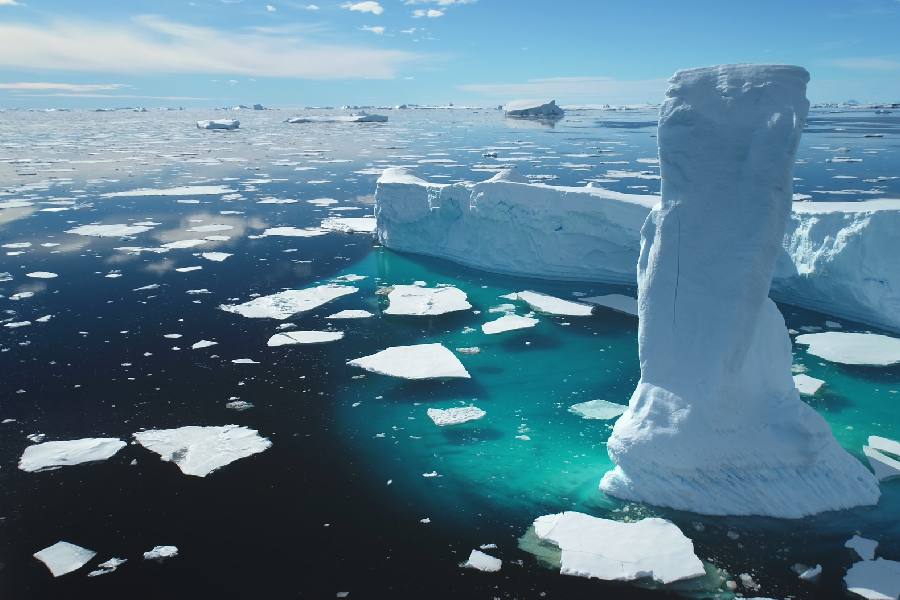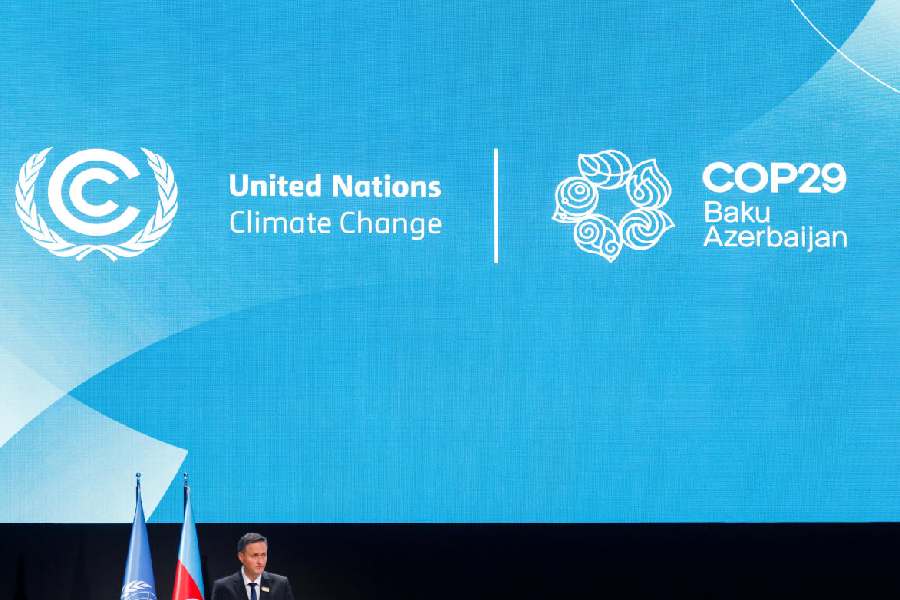Some developed countries on Wednesday acknowledged that trillions of dollars were urgently needed to address climate change and wealthy nations should continue to lead in providing climate finance.
These countries -- including Germany, Canada, France, and the Netherlands -- are part of an alliance known as the High Ambition Coalition, which advocates for bold climate actions.
"As we negotiate this new goal for climate finance, we must again overcome our differences, strengthen our commitment to global solidarity, and find the money to meet the planet's growing needs," the coalition said stressing that trillions of dollars were urgently needed.
The statement comes as countries spar over a draft for a new finance package to help developing countries cope with climate change -- or New Collective Quantified Goal (NCQG) -- that is expected to be finalised at the ongoing UN climate talks in Baku, Azerbaijan.
Harjeet Singh, a climate activist and global engagement director for the Fossil Fuel Non-Proliferation Treaty Initiative, said that while the statement aligned with developing nations and civil society's demands, it fell short of what was truly needed.
The coalition demanded solutions to debt burdens and high capital costs that make fighting climate change difficult in many countries, and called for a reformed international financial system to support their efforts.
It said climate finance should be primarily grant-based and concessional, particularly for adaptation and to address loss and damage. The right conditions must be in place for green investments to thrive.
"Developed countries must continue to take the lead and live up to existing finance commitments and innovative forms of finance be made a reality," the coalition added, calling for simplified and faster processes to approve and disburse climate funds.
The world should rapidly transition away from fossil fuels, triple renewables, double energy efficiency and cut fossil fuel subsidies, it said.
"We are halfway through the critical decade, and we must all - particularly the G20 - reflect these commitments in 1.5 degrees Celsius, align NDCs (nationally determined contributions) that are economy-wide, cover all sectors and gases, and have absolute reduction targets," the coalition said.
Jennifer Morgan, State Secretary and Special Envoy for International Climate Action, Germany, said: "We have also seen through the European Union how taking climate action goes hand in hand with our own economic prosperity. The European Union reduced emissions 8.3 per cent last year; as a whole we have reduced our emissions by 37 per cent, with an increase of 68 per cent in our GDP." "So, we've seen how it is in our own interest, not only our own emissions reductions but also to be working together to have a strong outcome here in Baku," Morgan said.
Linda Kalcher, executive director of Strategic Perspectives, said EU leaders had made their stance clear.
"This leaves no doubt that it's a political priority for them to achieve a successful outcome on climate finance and join forces with its traditional allies in the Global South. Now that impetus needs to translate into a less defensive negotiating position immediately," she said.
Climate activist Singh said developing countries needed a commitment of at least USD 1 trillion in grants, not loans, to genuinely support vulnerable countries in adapting to climate impacts, recovering from losses and damages, and implementing robust mitigation strategies.
"This is not an investment -- it's an obligation. Developed nations must uphold their historical responsibility and meet these real needs on the ground. Anything less, and we are failing those who suffer climate impacts through no fault of their own," he added.
Meanwhile, negotiations over the NCQG remain tense.
After a full day was lost due to an agenda dispute on Monday, discussions on the NCQG -- the core issue at this year's talks -- hit a wall on Tuesday, with the G77 and China rejecting the draft framework of the negotiating text.
Developing nations have been pushing for a robust climate finance package that is publicly funded, grant-based, concessional, supports their needs and priorities and covers mitigation, adaptation, and loss and damage from climate impacts.
Estimates indicate that developing and poorer countries will require trillions of dollars in the coming years to adapt to and combat climate change.
Among Global South negotiators, the Like-Minded Developing Countries (LMDC) group has suggested that USD 1 trillion per year is needed, the Arab Group has called for USD 1.1 trillion, the African Group USD 1.3 trillion, India USD 1 trillion, and Pakistan USD 2 trillion.
In contrast, developed nations want the NCQG to be a broad, global investment goal that includes funding from multiple sources, including governments, private companies, and investors.
They argue that the global economic landscape has changed significantly since the adoption of the UN Framework Convention on Climate Change (UNFCCC) in 1992, and that countries that have become wealthier since then, such as China and some Gulf states, should also contribute to the new climate finance goal.
With only 10 days left to reach an agreement amid challenges such as President-elect Donald Trump's threat to withdraw the US from the Paris Agreement, two ongoing wars, and high inflation, observers say securing a comprehensive finance deal is proving to be a daunting task.
Except for the headline, this story has not been edited by The Telegraph Online staff and has been published from a syndicated feed.











